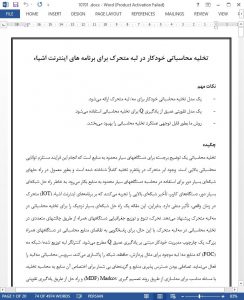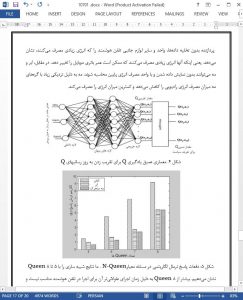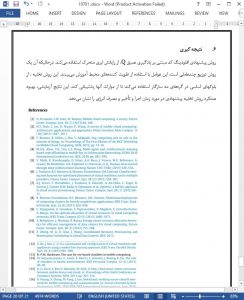Abstract
Computation offloading is a protuberant elucidation for the resource-constrained mobile devices to accomplish the process demands high computation capability. The mobile cloud is the well-known existing offloading platform, which usually far-end network solution, to leverage computation of the resource-constrained mobile devices. Because of the far-end network solution, the user devices experience higher latency or network delay, which negatively affects the real-time mobile Internet of things (IoT) applications. Therefore, this paper proposed near-end network solution of computation offloading in mobile edge/fog. The mobility, heterogeneity and geographical distribution mobile devices through several challenges in computation offloading in mobile edge/fog. However, for handling the computation resource demand from the massive mobile devices, a deep Q-learning based autonomic management framework is proposed. The distributed edge/fog network controller (FNC) scavenging the available edge/fog resources i.e. processing, memory, network to enable edge/fog computation service. The randomness in the availability of resources and numerous options for allocating those resources for offloading computation fits the problem appropriate for modeling through Markov decision process (MDP) and solution through reinforcement learning. The proposed model is simulated through MATLAB considering oscillated resource demands and mobility of end user devices. The proposed autonomic deep Q-learning based method significantly improves the performance of the computation offloading through minimizing the latency of service computing. The total power consumption due to different offloading decisions is also studied for comparative study purpose which shows the proposed approach as energy efficient with respect to the state-of-the-art computation offloading solutions.
1. Introduction
The massive growth of mobile devices (e.g. smart phones, laptops, tablet pc’s, mobile IoT’s and automobiles) and their computation demands imposed a huge scarcity in communication network and computation resources. Some of the application services e.g. image processing and real-time translation services require extensive computation, the resource-constrained mobile devices are not the feasible domiciles to process those applications. Therefore, to meet the computation demands of such type of mobile devices and applications the outsourcing of computation is the demand in need.
6. Conclusion
The proposed deep Q-learning based code offloading method leverage the mobile cloud computing. As it is a multi-agent based distributed method, agents learn from the environment through reinforcements. The offloading method deploys basic blocks in compatible fog nodes to support parallelism. The experimental results show the improved performance of the proposed offloading method in respect to execution time and latency and energy consumption.










